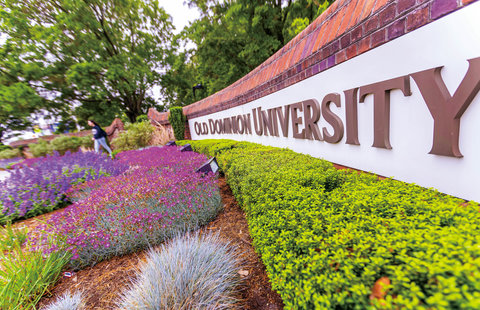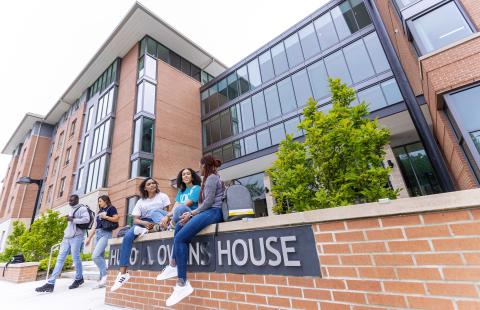Old Dominion University offers a Master of Engineering degree in Engineering with a concentration in Biomedical Engineering. Both the Master of Science and Master of Engineering degrees are designed for students who would like to advance their knowledge and expertise in biomedical engineering. These programs are intended to broaden students' knowledge of the field in preparation for the biomedical technology industry or a PhD program. The Master of Science program requires completion of 8 three-credit courses and 6 thesis research credits. The eight courses include three core courses, selected from a choice of four, and five technical electives, which should be chosen to meet the student’s research and career objectives. The Master of Engineering program requires completion of 10 three-credit courses: three core courses, selected from a choice of four, and seven elective courses. The seven elective courses are chosen to meet the student's career objectives.
Program Highlights
-
Contribute to world-class research in Bioelectrics and Pulsed Power, Cellular & Molecular Bioengineering, Cardiovascular Engineering, Surgery Planning and Simulation, Musculoskeletal Biomechanics, Neural Engineering, Plasma Medicine, Surgical Robotics and Systems Biology & Computational Bioengineering, and More.
-
Develop broad understanding of Biomedical Engineering by taking 30 credits, with (MS) or without (ME) a thesis.
Careers
Check out these ideas from ODU's Center for Career & Leadership Development and the Occupational Information Network (O*NET). A median salary is a midpoint of what people typically earn—half of those surveyed earned above the median salary, and half earned below.
Lay out, build, test, troubleshoot, repair, and modify developmental and production electronic components, parts, equipment, and systems, such as computer equipment, missile control instrumentation, electron tubes, test equipment, and machine tool numerical controls, applying principles and theories of electronics, electrical circuitry, engineering mathematics, electronic and electrical testing, and physics. Usually work under direction of engineering staff.
Test or modify developmental or operational electrical machinery or electrical control equipment and circuitry in industrial or commercial plants or laboratories. Usually work under direction of engineers or technologists.
Research and study cellular molecules and organelles to understand cell function and organization.
Apply theory and principles of environmental engineering to modify, test, and operate equipment and devices used in the prevention, control, and remediation of environmental problems, including waste treatment and site remediation, under the direction of engineering staff or scientist. May assist in the development of environmental remediation devices.
Requirements
-
Completion of a bachelor's degree in Engineering, Science or Mathematics from an accredited institution, although students from other educational backgrounds may apply with appropriate leveling courses.
-
Two letters of recommendation (typically from faculty in the highest degree program completed when the application is within five years of graduation from that degree program) are required.
-
The applicant must submit a resume and a statement of purpose and goals.
-
Foundation knowledge in physics, basic chemistry, computer programming, and mathematics is expected.
For Admission to the Biomedical Engineering Program
A minimum GPA of 3.00 (out of 4.0) is required of most students. A student with a lower GPA meeting ODU's graduate admission requirements and with evidence of a high level of professional capability may be eligible for admission to the program upon submission of a petition to the graduate program director.
Recent scores, typically, not more than five years old, on the Graduate Record Examination's (GRE) verbal, quantitative, and analytical writing sections must be submitted by all applicants.
Cost of Attendance
We believe in providing students with transparent and accessible information about the cost of attendance.
Review the estimated tuition rates for the 2025-26 academic year (subject to change). Other fees are assessed for special services and certain academic programs. Non-resident rates are charged for anyone who is not a current Virginia resident, including international students.
Ways to Fund Your Degree
There are a few ways for you to save on the cost of attending Old Dominion University, including scholarships, assistantships, and student loans. For more details about financial aid at Old Dominion, visit the Financial Aid Office page.
Contact







